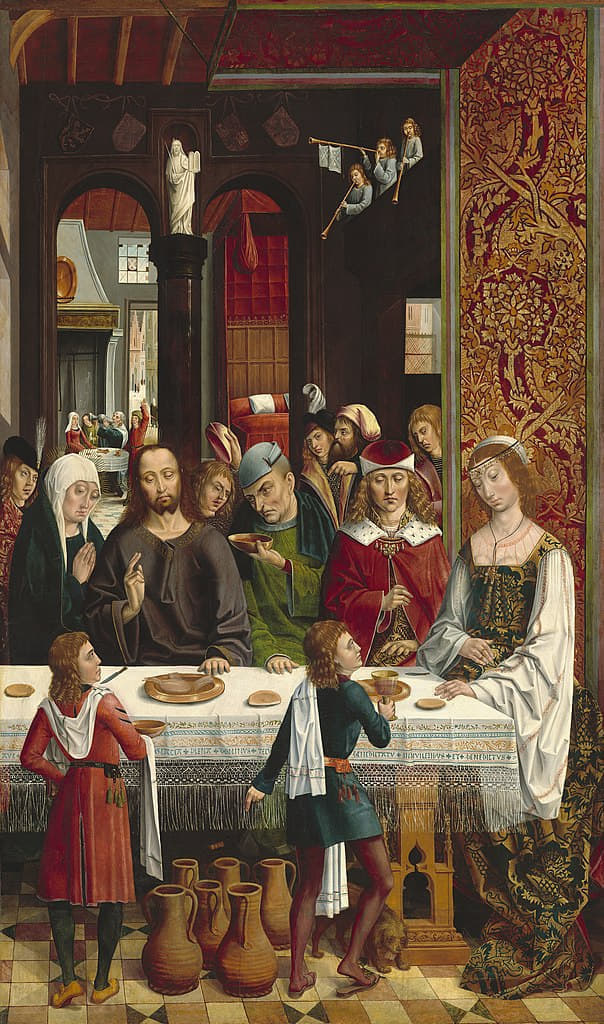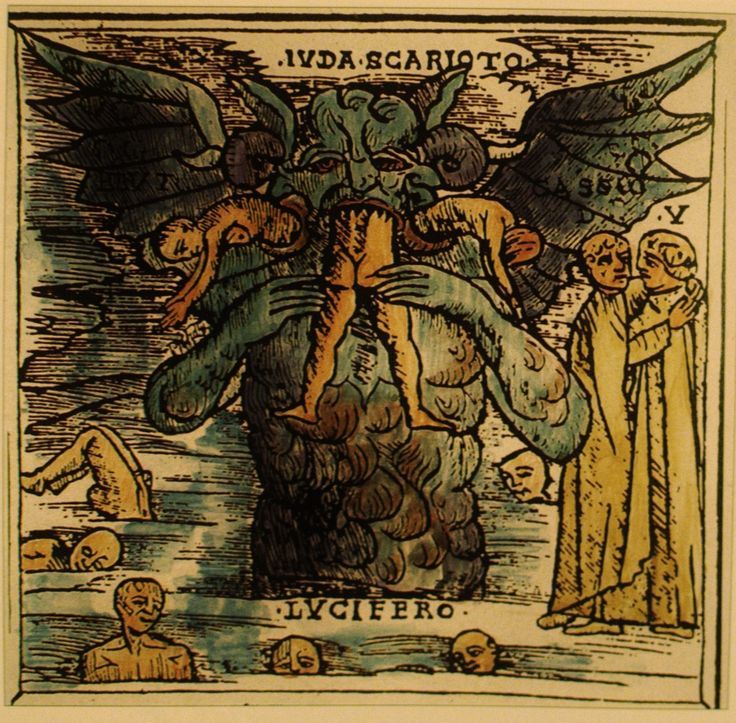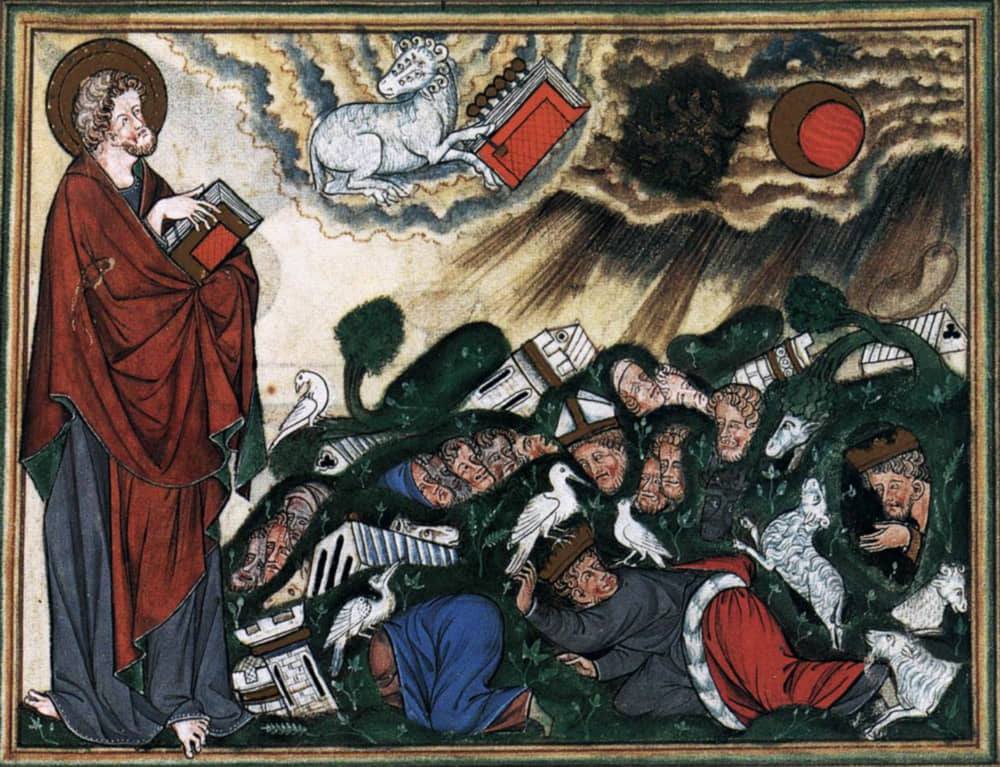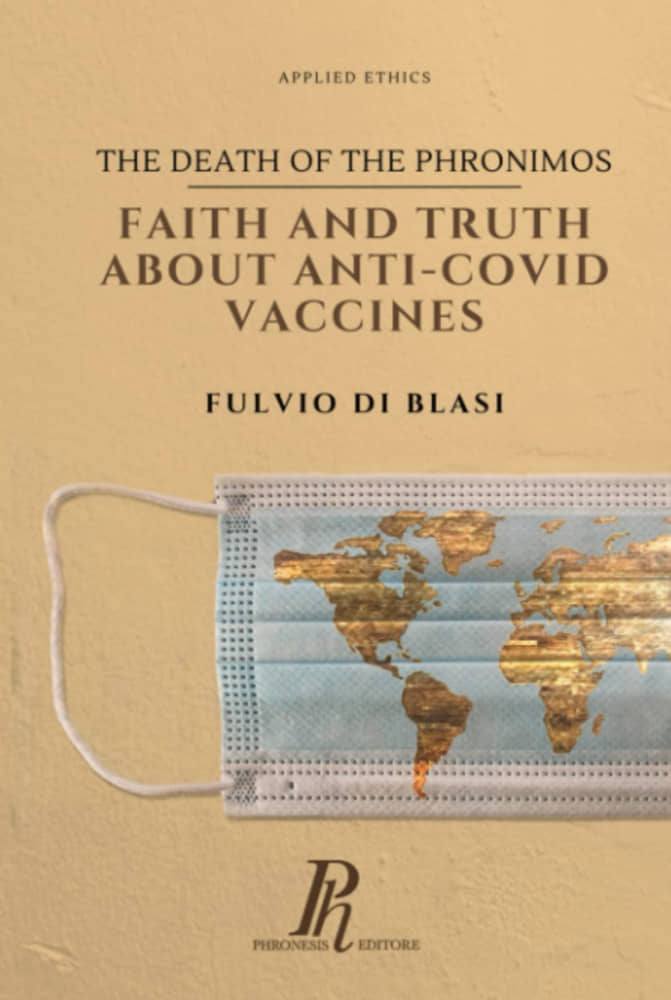Recently, a person on social media, after erroneously attributing to me the idea, written in this article, that traditional Catholic morality represents a “discounted, fearful teaching that has no bearing or relevance for the faithful,” told me that in any case “the inseparability principle is demonstrated to be false.” The context of our exchange was obviously Catholic sexual ethics, and he referred to the principle (used in Humanae Vitae) according to which the two meanings of the sexual act (procreative and unitive) cannot be separated. My discussion with him proved to be revealing of some common misinterpretations regarding this topic and is therefore useful to report.
I must say that I was puzzled by his sharp statement as I had never heard of such an allegedly obvious truth about a principle I myself explained many times in classes and writings. So, I just replied that the inseparability principle is one of the most beautiful and solid cornerstones of magisterial teaching, and that I have never read any credible arguments that would deny it.
Does “Independent Meaning” Equal “Separable Meaning?”
I thought this was enough for our friendly exchange on the social network, but he soon came back to me strongly claiming that the principle was old stuff, that,
The primary purpose of marriage (procreation) is independent of the secondary, and therefore is “separable,” because it does not depend on the secondary to exist.
I’m not that comfortable with this use of the term “independence” to indicate the potential relationship between marriage’s ends but I don’t mind following the reasoning and language of my interlocutors, at least initially. Having said that, the first thing that caught my eye in this sentence was the logical confusion of necessarily linking “being independent” with “being separable,” as if the inseparability principle could imply the impossibility of one of the meanings to exist without the other. I wasn’t totally sure if this was his actual problem, but I thought it was relevant, so I replied,
You’re making a typical logical error in ethics. Every moral norm or principle implies the factual possibility of breaking it. For example, the fact that it is possible to give birth or raise a child without love does not mean that it is morally licit to do so. When we use the term “impossible” in morality we express an ought, not a factual impossibility. The principle of inseparability of the procreative and unitive meanings must obviously be understood in a moral sense. The factual possibility of separating the meanings is not an objection, it is a logical premise of the moral principle. If they couldn’t be separated de facto, there would be no need to formulate the ethical principle.
Does “Independent” Equal “Primary,” Equal “Essential?”
I thought this would settle the matter, but I was wrong because he, in addition to confusing independence with inseparability, also confused “primary” with “essential” and thought that the principle of inseparability implied affirming the existence of two primary ends. For reasons unknown, he attributed to me this eccentric idea that there were two primary ends,
The primary is independent. The secondary is dependent. There is only one primary (essential) purpose to marriage. You are saying there are two primary purposes. The # must be correct before liceity of any marriage-related issue can be identified.
Of course, he had to admit that I had never said such a thing, but he added,
It’s not your quote, however “two primary purposes” is the necessary result of “inseparability.” How many, do you say, of the purposes of marriage are essential to it?
Not without some patience and good humor, I had to remind him that the classical view has nothing to do with the idea of two primary ends,
Well, the traditional view, which is my own too, is that there are two ends, one primary and one secondary.
But he immediately insisted on going back to the alleged intrinsic connection between the concepts of “primary” and of “essential,”
Okay, of the two ends, how many are essential to marriage?
My answer, of course, was “Both.” So, he insisted again,
If both are essential, then neither is independent of the other. However, the Church teaches that the primary purpose of marriage does not depend on the secondary in its essential perfection. How is this contradiction remedied?
This reply revealed some deeper metaphysical shortcoming. I therefore decided to provoke my interlocutor with a metaphysical analogy which highlighted other types of essential elements of which one was primary and one secondary and which did not imply inseparability. I also asked for specific quotes from the Magisterium so to better understand from where his doubts were coming:
Are being animal and being rational both essential to the human being? Which one is primary? Are they dependent on each other? How is death possible? Where exactly is the Church teaching what you say? Please provide exact quotes for what you claim.
Pius XII
At my solicitation, he revealed the magisterial source of his conviction. It was Pius XII:
An essential “purpose” can exist independent of its secondary purpose. But the secondary purpose cannot exist without the primary. This is why the legal object of marriage consent is the primary purpose only, and not the secondary. Here is Pius XII condemning “dependent primary.
This line still reveals the confusion between “essential” and “primary,” but at least he added a reference to a document which, although drafted by Pius XII, was issued by the Supreme Sacred Congregation of the Holy Office (Decree on the Ends of Matrimony, April 1, 1944). My interlocutor strangely missed that the whole point Pius XII wanted to make was to reaffirm the doctrine according to which there are certain “goods” or “essential properties” of marriage (Pius PP. XI, Casti Connubii, 1930) of which one is primary (procreation) and other secondary, and that secondary goods cannot be interpreted as independent.
This is how the Decree from 1944 (quoted by my online friend) put it:
A novel manner of thinking and speaking was born hither unto fomenting errors and uncertainties; seeking to avert these things, the most Eminent and Reverend Fathers of this Supreme Sacred Congregation, charged with safeguarding matters of faith and morals, in the plenary session of Feria IV, held on the day of March 29, 1944, to the dubium put before them: “Whether the opinion of certain modern [authors] may be admitted, who either deny that the primary end of matrimony is the generation and raising of offspring or teach that the secondary ends are not essentially subordinate to the primary end but are equally paramount and independent?”; they have decreed the response: Negative” (Decree on the Ends of Matrimony, April 1, 1944).
And this is how Pius XII himself summarized what happened with the dubium and the Decree:
Now the truth is that marriage, as a natural institution, by virtue of the Creator’s will does not have as its primary and intimate purpose the personal improvement of the spouses, but the procreation and education of new life. The other ends, although they too are intended by nature, are not in the same degree as the first, and even less are they superior to it, but are essentially subordinate to it. This applies to every marriage, even if it is infertile… Precisely to cut short all the uncertainties and deviations, which threatened to spread errors about the scale of the ends of marriage and their mutual relations, We Ourselves drew up a few years ago (March 10, 1944) a declaration on the order of those ends, indicating what the same internal structure of the natural disposition reveals, what is the patrimony of the Christian tradition, what the Supreme Pontiffs have repeatedly taught, what was then established in the due forms by the Code of Canon Law. Indeed, shortly afterwards, to correct the contrasting opinions, the Holy See with a public decree pronounced that the sentence of some recent authors could not be accepted, who deny that the primary purpose of marriage is the procreation and education of offspring, or who teach that secondary ends are not essentially subordinate to the primary end, but equivalent to and independent of it (S. C. S. Officii, April 1, 1944—Acta Ap. Sedis, vol. 36, a. 1944. 103). (Pius XII, Speech of His Holiness PIO PP. XII to the participants in the congress of the Italian Catholic Union of Obstetricians, Monday, October, 29 1951).
And again,
Two tendencies are to be avoided: the one which, in examining the constituent elements of the act of generation, gives weight solely to the primary purpose of marriage, as if the secondary purpose did not exist or at least were not finis operis established by the Orderer of nature himself; and that which considers the secondary end as equally principal, freeing it from its essential subordination to the primary end (Pius XII, Speech to the Tribunal of the Sacred Roman Rota, Friday, October 3, 1941).
Thus, this is how I replied to my interlocutor’s quote:
This document does not say that unity is not essential to marriage but that it is subordinate to the primary (essential) end, which is exactly what I’ve been saying all along. You keep confusing the concepts of “essential/not essential” with those of “primary/secondary.” The secondary meaning of marriage is essential to marriage too even if it is essentially subordinate to the primary end. I don’t see any logical problem here.
Yet, he had done more than confuse those meanings. Surprisingly, he had claimed that “the legal object of marriage consent is the primary purpose only, and not the secondary.” Thus, I politely reminded him what the Code of Canon Law actually states,
You may like to consider canon 1096, which clarifies, in terms of validity, what is essential to the existence of the marital consent: “Can. 1096 §1. For matrimonial consent to exist, the contracting parties must be at least not ignorant that marriage is a permanent partnership between a man and a woman ordered to the procreation of offspring by means of some sexual cooperation.” The concept of “permanent partnership” includes a reference to unity (secondary end), which is as essential to the contract as the primary end (“ordered to the procreation”) is.
Matrimonial Consent and the Conjugal Act
He insisted,
When legally defining marriage, “unity” refers only to exclusivity AKA faithfulness AKA fidelity. If “inseparability” is true, then no purpose of marriage is independent, correct?
I interpreted this further response as a difficulty in connecting the unitive meaning to love, also generating an eccentric contrast between love, on the one hand, and the legal concepts of exclusivity, faithfulness, and fidelity, on the other. After all, he had just claimed that “the legal object of marriage consent is the primary purpose only” (i.e., he thought that unity was not part of the essence of the contract). He was clearly trying now (after I recalled Canon 1096 about “permanent partnership”) to legally interpret “unity” in a different way than that expressed by the inseparability principle. Thus, in my reply I focused on the important consistency that must exist between legal definitions and the substance of things.
The legal definition of the existence requirements must correspond to the substance because it indicates what is essential to the real existence of marriage, in this case with respect to the purity of the will. If the will does not include the essential, the marriage does not come into existence. If the will does not include some important but accidental elements, marriage comes into existence but could be vitiated (annulment). In all the explanations I know (including Aquinas’) indissolubility is linked to the purity of spousal love (unity) and not to procreation because procreation per se, conceptually, does not require indissolubility (but at most a certain stability for enough years: cf., Summa Contra Gentiles, III, 122). Still, procreation is the primary meaning of marriage. Obviously, the inseparability of the meanings of marriage does not imply inseparability with respect to all acts internal to marriage, except in the case of the conjugal act. A nice outing with the wife and a hug when she is frightened need love in themselves but not procreation. The conjugal act needs both because outing and conjugal act are very different things, even within marriage. Logically, it’s very different to refer inseparability to the marriage as a whole or to the individual acts that the spouses continuously perform within the marriage. There is only one act within marriage which is so defining of it that it necessarily includes both meanings, and coincidentally this act (the conjugal act) is also necessary for the actual conclusion of the marriage, which makes it indissoluble.
Analogical Predications
My interlocutor has never allowed himself to be involved in my conceptual solicitations. His only problem was maintaining the logical objection that the principle of inseparability is denied by the claim that the primary end is independent of the secondary ones and, therefore, separable:
“Inseparable” purposes of marriage = no purpose can exist independently of the other. Pius XII says the primary purpose of marriage is “independent” of the secondary purpose. Was he wrong?
Philosophers always feel the primary need to clarify the meanings of terms, especially when there are various analogical meanings involved. I sensed that this was a case where this need had to be satisfied. So, I wrote the following,
You cannot reduce analogical meanings to univocal meanings. Both “inseparability” and “independence” can refer, for example: (a) to the marriage contract; (b) to a marriage in fieri as a partnership; (c) to the object of each single action; (d) to the intention of the agent. There is no contradiction, e.g., in saying that the two meanings are inseparable compared to “(a)” and not compared to “(c)” or “(d).” Humanae Vitae says that they are inseparable compared to “(c)” in the specific context of the conjugal act.
The point is that the doctrine of the inseparability of the two meanings has been used in Humanae Vitae to explain the immorality of contraception compared to its object. It was not used to explain the morality of every possible action performed by the spouses as a married couple. This doctrine or principle does not mean that even in the act of choosing movie night at home those two meanings must be present and inseparable. Clearly, marriage as a whole—the life together of the spouses—essentially requires both meanings, but as to specific acts of married life, there is only one act capable of encompassing the very essence of marriage, the conjugal act.
Again, the analysis of the human act can be done with respect to the object, the end, and the circumstances. In the case of intrinsically evil acts, the analysis of the objectivity of the act precedes and renders superfluous (at least in this respect) that of the end and of the other circumstances. This means that Humanae Vitae, even with respect to the conjugal act, did not need to refer the inseparability principle to the spouses’ intentions and/or to their entire marital life. Humanae Vitae focuses on the order of objective morality of the conjugal act.
Conclusion
The online discussion with my friend didn’t end here and maybe it will never end, but this is enough to clarify at least some important points regarding this topic. At the end of the day, his doubt was about the possible contradiction between the inseparability principle and the alleged independence of the primary end. How should we handle this doubt? One answer is that Pius XII and the Magisterium only used the concept of “independence” to deny erroneous theses which sought to make the secondary purpose independent. A more logical answer, which tries to save a possible correct use of the term, lies in the analogical predication and the logical distinctions I mentioned.
Essential, defining features cannot be independent in the sense that if one is missing the relevant thing is not there. Being animal and being rational are both essential to the human being. If one is missing, there is no human being. From this point of view, it does not matter if one feature is primary (being rational) and one secondary (being animal). This, however, does not mean that everything pertaining to the human being needs to have both defining features. For example, digestion, cellular mitosis, or sleeping do not need to be defined in terms of both animal and rational activities. There is one sense in which they all pertain to the human being and another sense in which they are not rational per se. Other crucial acts, on the other hand, essentially include the definition of the human being: e.g., (moral) choice.
Similarly, marriage is essentially defined in terms of both procreation and (loving) unity, but this does not mean that every act in married life includes both elements as defining features. In many ordinary acts that characterize married life (cooking a nice dinner, embracing after a fright, or defending one’s child from a stranger) the two meanings can be described as separable and independent (or, to use a better term, “distinct”).
Separability and independence can also be predicated in many cases of the order of intention compared to the objective moral order (without underestimating the difference between the habitual end and the intention of the proximate end). Spouses do not need to constantly think about procreation in every act of their life. They just ought to act in a context in which the purpose of procreation is objectively respected.
One final note on love and procreation. Many don’t understand why love in marriage, while more important per se, is secondary. Love is the highest meaning (inseparable from any other, at least as a habitual end) in any human reality because it is the first commandment of the law and the reason of our entire existence. Yet, love can exist without sex (think of angels, or love for children). The only reason for the existence of sex is procreation, but procreation must occur in the human reality, which is informed by the precept of love. In the same way, we can say that the primary meaning of the hammer is to drive nails even if we use the hammer to build our house. In this case, the house is a higher meaning of the hammer but not its primary meaning. Sexual life is primarily ordered to procreation but is also essentially ordered (as everything else in our existence) to love God and our neighbor. In the loving order of creation, procreation too—and the diachronic existence of the human race in history—is ordered to the love of God.
Fulvio Di Blasi, Ph.D., Esq., is an expert in moral philosophy and author of God and the Natural Law: A Rereading of Thomas Aquinas, From Aristotle to Thomas Aquinas: Natural Law, Practical Knowledge, and the Person, and Vaccination as an Act of Love? The Epistemology of Ethical Choice in Times of Pandemic.
Featured: The Marriage at Cana, by the Master of the Retable of the Reyes Catolicos; painted ca. 1495-1497.






